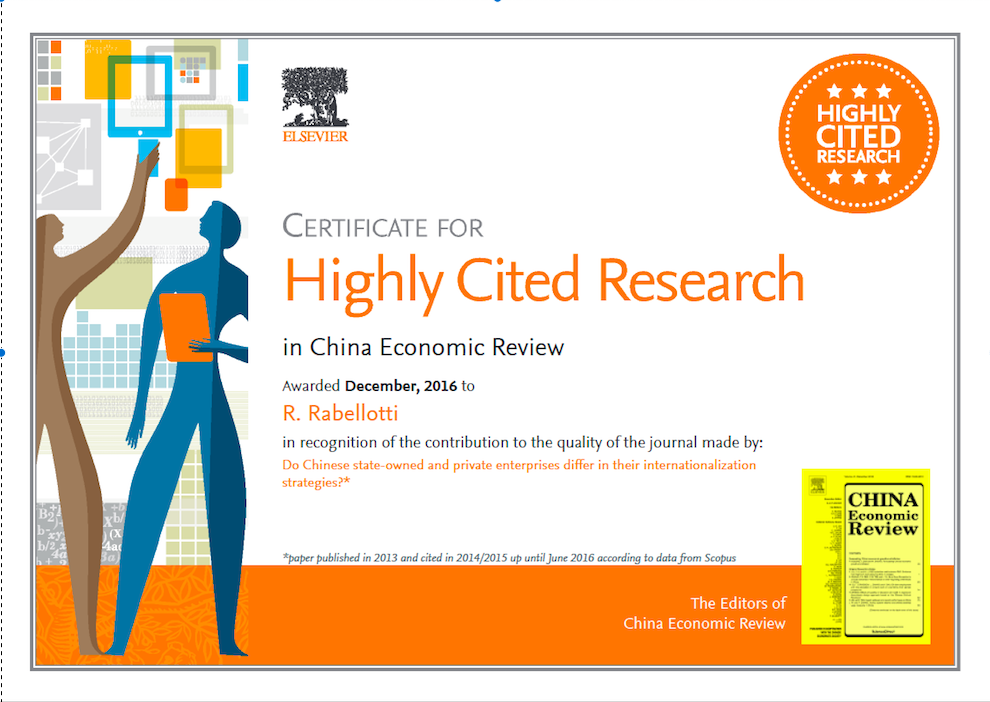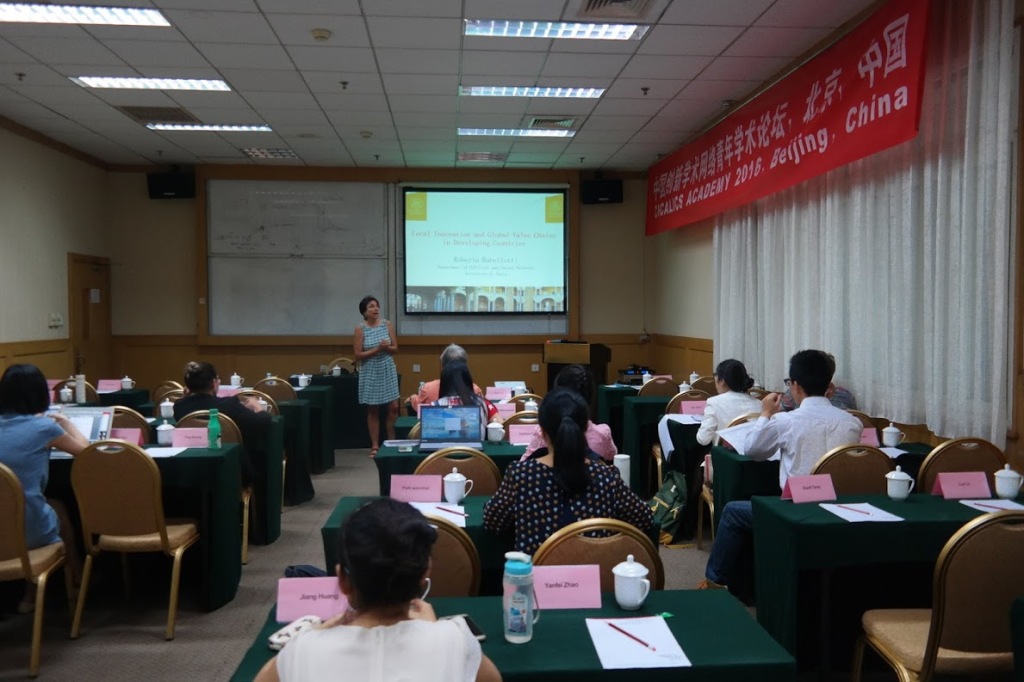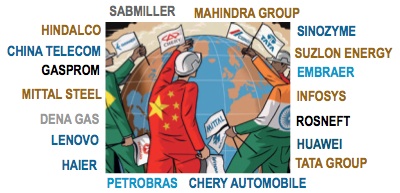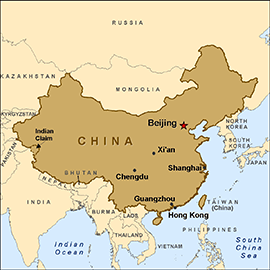5 most highly cited in China Economic Review, 27: 312-325
The article is co-authored with Alessia Amighini and Marco Sanfilippo.
We empirically analyse the host country determinants of Chinese outward foreign direct investments (FDI) for the years 2003 to 2011, using disaggregated data by country and industry. Our aim is to assess the relevance of market seeking, resource seeking and strategic asset-seeking motivations as suggested by the theory on host country determinants of FDI.











